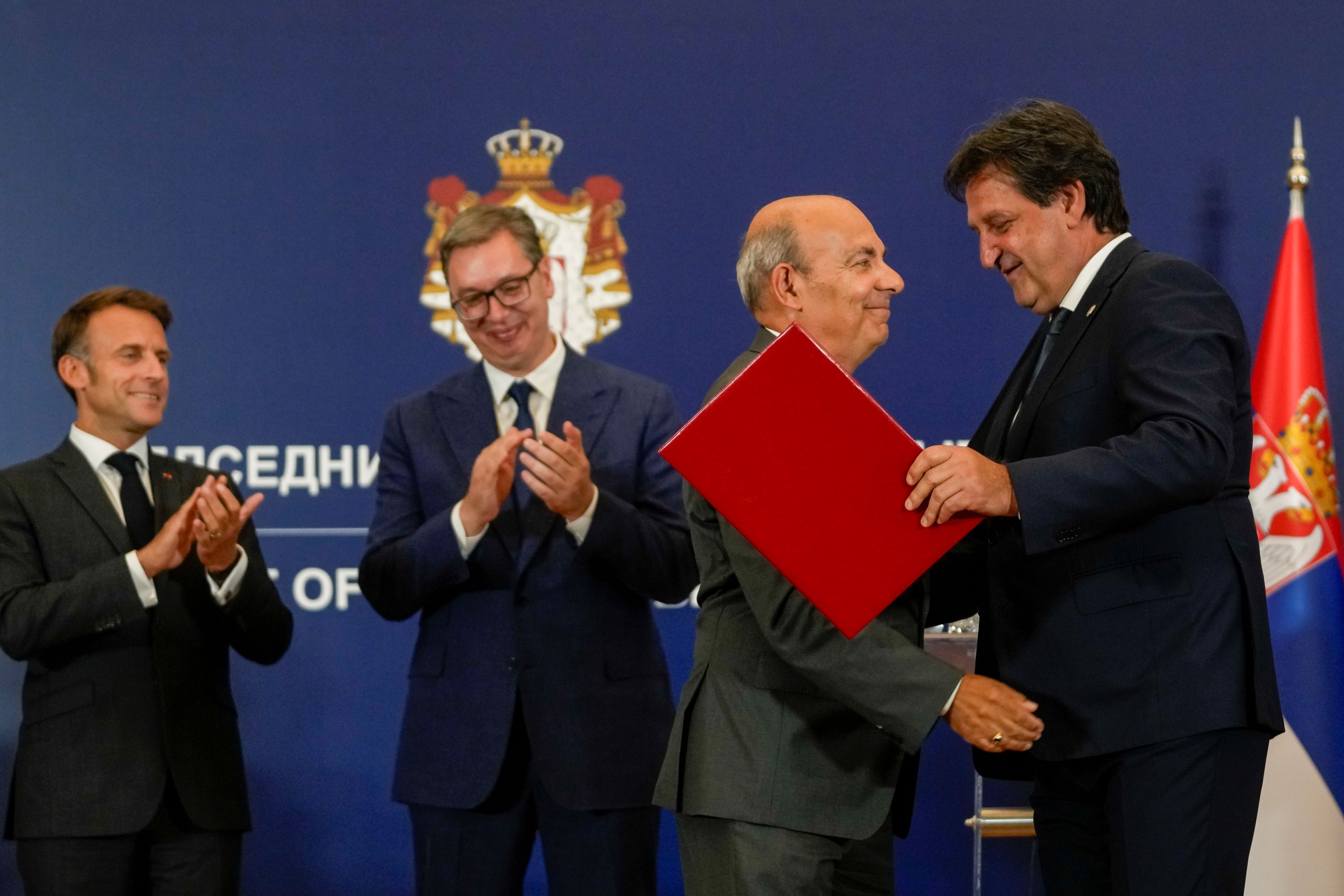
BELGRADE - Serbia on Thursday signed a landmark agreement with France's Dassault Aviation for the purchase of 12 new Rafale fighter jets for 2.7 billion euros ($2.99 billion).
The agreement, signed by Serbia's Defence Minister Bratislav Gasic and Dassault Aviation CEO Eric Trappier, also includes a complete auxiliary logistics package, spare engines and parts, Serbia's President Aleksandar Vucic told a news conference.
"A dozen of brand new aircraft will be owned by Serbia ... this will contribute to a significant increase in the operational capabilities of our army," Vucic said.
"We are happy to become a part of the Rafale club."
The acquisition, made during French President Emmanuel Macron's visit to Belgrade. Macron said Europe needs a strong and democratic Serbia, while Belgrade needs a "strong and sovereign EU".
"Choice of Rafale jets by Serbia is in this context a clear choice of long-term alliance between our two countries," Macron said.
The purchase of Rafales is the single biggest weapons deal since Serbia became independent from its state union with Montenegro in 2006.
Vucic said Serbia would pay two tranches of 421 million euros each in 2024 and 2025 for the planes.
ALSO READ: New Serbian government formed under PM Milos Vucevic
He did not specify when Serbia would receive its first Rafales, but said they would be delivered with MICA air-to-air medium-range missiles manufactured by France's MBDA, instead of more sophisticated Meteor missiles which have longer range.
Serbia's military and air force are loosely based on Soviet technology, but it has also purchased helicopters and transport planes from Airbus, radars from Thales and France's Mistral surface-to-air missiles.
Serbia also operates Chinese missiles and drones. Its defense budget amounts to around 2 percent of gross domestic product (GDP).
READ MORE: Serbian president meets Chinese state councilor
This is Macron's second meeting with Vucic this year and follows the visit of Chinese President Xi Jinping to Belgrade in May, highlighting Serbia’s strategic position on the edge of the EU, with ties to the east and west.
The EU remains Serbia's single biggest investor and hundreds of thousands of Serbs work in Western-owned companies.



